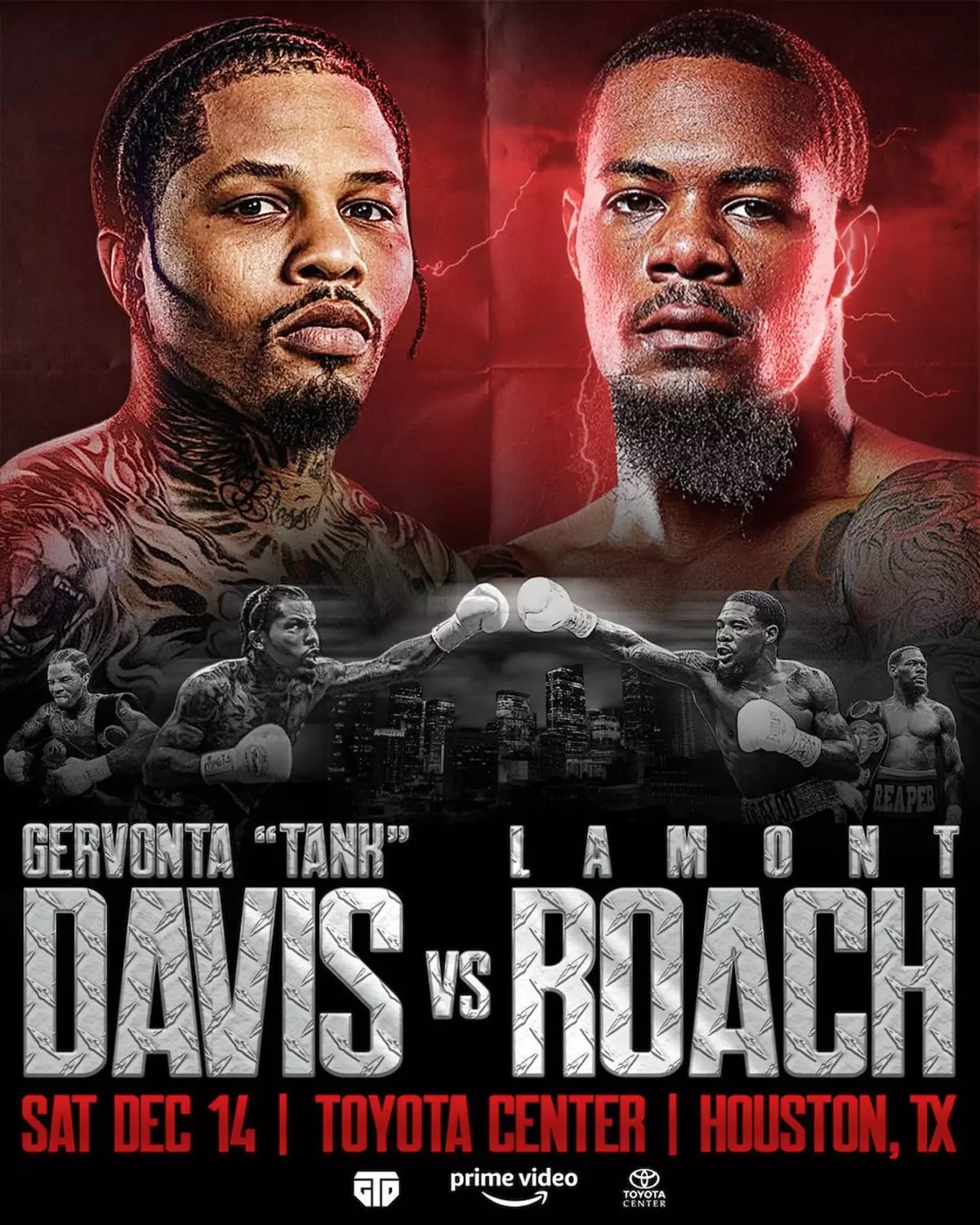By BoxingHit Staff-
As the boxing world eagerly anticipates the showdown between Gervonta “Tank” Davis and Lamont Roach on December 14th at the Toyota Center in Houston, Texas, conversations around the legitimacy of this match are heating up. Davis, the reigning WBA lightweight champion with an impressive record of 30 wins and no losses, faces off against Roach, whose record stands at 25 wins, 1 loss, and 1 draw. Although the bout promises excitement, many fans and analysts alike are skeptical, characterizing Roach as a less-than-challenging opponent for the powerhouse Davis. This skepticism culminates in claims of a “cherry pick”—a notion that implies Davis is intentionally selecting an easier opponent to maintain his undefeated status and enhance his marketability.
The term “cherry pick” is often thrown around when discussing matchups, and in this instance, the discourse hinges on several points. Critics highlight that Roach is unranked in the lightweight division and lacks significant victories over top-tier fighters. Moreover, both fighters are affiliated with the Premier Boxing Champions (PBC), which raises eyebrows about promotional motivations guiding the matchup. The assertion that Davis’s 11-year career thus far has been predominantly filled with underwhelming fights has not just emerged from the ether; it reflects a broader sentiment of frustration amongst boxing enthusiasts.
Fans recognize the absence of marquee names in Davis’s fight history, lamenting that he hasn’t engaged with the likes of Vasily Lomachenko, Shakur Stevenson, or Devin Haney. Instead, bouts against less formidable opponents are seen as a strategy to skew the narrative surrounding his skill set while minimizing risk—an approach that some argue diminishes the excitement and authenticity of the sport itself.
Interestingly, Coach Stephen Edwards, who trains Roach, has voiced a contradictory perspective on the narrative surrounding the fight. Edwards contends that the matchup should not be regarded as a cherry pick, arguing that differing perceptions drive the conversation. He suggests that many passionate fans have heightened expectations for Davis, anticipating showdowns with the division’s elite. According to Edwards, this inflated view leads to accusations of cherry picking anytime Davis faces someone perceived as a lesser challenge—even though he feels confident that Roach has the tools to be competitive in the ring.
Yet, even Edwards does not advocate for Roach over Davis; he frankly admits that he sees Tank as the superior fighter in this clash. This duality—the acknowledgment of Roach’s potential capability against the overall strength of Davis—underscores the complex nature of boxing narratives.
The larger frustration within the boxing community is palpable. For a sport that prides itself on competition and showcasing the best talent, recurring instances of what appears to be strategic matchmaking are disheartening to dedicated fans. If Tank Davis is indeed riding a wave of carefully crafted narratives, this diminishes the sport’s competitive spirit, potentially alienating supporters who crave authenticity and excitement.
Additionally, many believe that bouts like this expose a fundamental issue in modern boxing—where management and promotional considerations sometimes overshadow the importance of competitive integrity. Can a fighter truly call themselves the best if they consistently sidestep challenges? The boxing community questions whether the lack of strong opposition leads to a false sense of superiority, evidenced by Davis occasionally underperforming against lesser-skilled fighters like Rolly Romero and Isaac Cruz.
As Davis’s upcoming bout against Roach looms closer, fans find themselves grappling with a pressing question: what does it mean to be a champion in the current boxing landscape? Beyond raw talent and knockout power, does a champion’s legacy hinge on their ability to face and conquer a broad spectrum of opponents?
Ultimately, boxing is more than just a sport; it is a spectacle built on the nexus of fan engagement, athlete integrity, and competitive fervor. Until significant changes are made regarding matchmaking strategies, the boxing community may continue to express dissatisfaction, thirsting for moments where champions rise to the occasion against worthy adversaries. As this mentality shifts, it may pave the way for a future sporting landscape that prioritizes the essence of competition and the thrill of genuine challenge.


Leave a Reply